“Molly Flexwell“Molly Flexwell helps exhausted caregivers reclaim their energy, self-worth, and joy through practical tools and kindness-led living”
Signs Stages and Self Care Strategies
Caring for someone you love is an act of devotion. It can also quietly drain your strength if you never pause to refill your own cup. Caregiver burnout is more than tiredness. It is a deep exhaustion that seeps into your body your mind and your spirit. It shows up in your bones and behind your eyes. It tugs at your patience and steals your joy. If you are a mother a nurse a partner a daughter a neighbour or a friend who carries the weight of care this guide is for you.
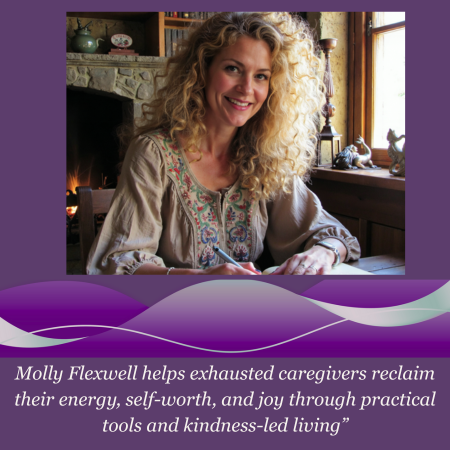
I wrote this guide as a warm and practical companion for the Molly Flexwell community. You give and give. You hold the fort at two in the morning and at two in the afternoon. You keep track of your to do list at work and at home. Patients or loved ones medications and appointments and the small kindnesses that make a day feel possible. Here you will find what caregiver burnout really is. You will learn to notice the early signs. You will discover practical and compassionate strategies that fit inside real life. Our aim is simple. Protect your energy. Protect your heart. Protect the bond you share with the person you care for.
Remember this truth. Your wellbeing matters too. You are allowed to be devoted and strong. You are allowed to be loving and in your best health.
What is caregiver burnout
Caregiver burnout is a state of complete physical emotional and mental exhaustion. It develops when you care for someone over a prolonged period without adequate support or rest. It is not a simple case of being a bit tired. You cannot mend it with one nap or one weekend off. Burnout builds through constant strain. Your stress response becomes overworked. Your capacity to cope narrows. Your kindness starts to operate on an empty tank.
It can feel like emotional emptiness. You keep giving and feel there is nothing left for you. It can feel like physical strain. Headaches muscle aches and gut upsets arrive and stay. It can feel like mental fog. You forget small details. Decisions feel sticky and slow. You may notice a flatness where tenderness used to be. You may notice guilt that whispers you should do more even though you are already doing more than most.
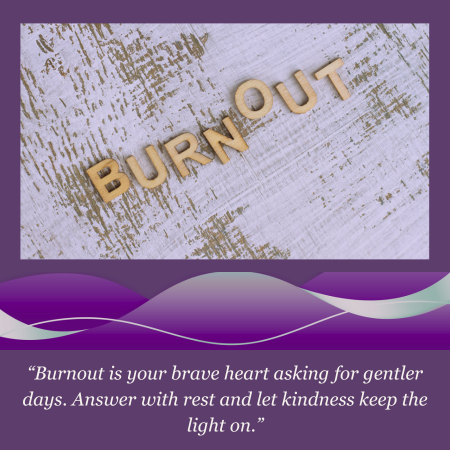
Burnout is not a personal failure. Burnout is a message. Your body and your heart are asking for change.
Early warning signs to look out for
Burnout rarely arrives all at once. It builds in whispers before it roars. When you listen for the whispers you can act sooner.
You may wake up tired and stay tired. You may feel irritable or snappy with the people you love. You may withdraw from friends from hobbies and from community. You may feel resentful or trapped inside your role. You may carry physical complaints that do not settle such as back pain headaches and digestive upset. You may struggle to focus and to make simple decisions. You may notice you are losing interest in the small pleasures that once sustained you.
Treat these signs as friendly red flags. They are not here to scold you. They are here to guide you back to yourself.
The stages of caregiver burnout
A map is not a judgement. A good map simply shows where you are and what might help next. These stages describe a common path through caregiver stress. You can move back and forth between them. Your story may linger in one stage longer than another. Use the map to choose the next kind step.
The honeymoon stage
You feel energised and committed. You want to do things properly. You may ignore your own needs because the person you care for seems to need you more. Stress feels manageable. You push through and tell yourself you will rest later.
What helps in this stage is the early planting of boundaries. Share tasks before the load grows heavier. Create simple rest rituals that you protect with the same care you give medication times. Begin a journal and track mood sleep and energy. Future you will thank present you for the data and for the compassion.
The stress stage
Cracks begin to show. Your sleep becomes patchy. Your appetite shifts. Your patience shortens. You skip meals or gulp food standing at the sink. You move your body less. You cancel a coffee with a friend because you feel too tired to speak.
What helps in this stage is the addition of micro breaks. Ask for specific help. Simplify routines. Create two calm corners. One for you and one for the person you support. Place a chair a blanket a timer and a cup. Give your nervous system two minutes of quiet more than once a day.
The chronic stress stage
Exhaustion builds. The load feels heavier. The list never ends. Anxiety and tears become more common. Numbness also visits. Ordinary tasks feel overwhelming. You are not lazy. You are saturated.
What helps in this stage is structured support. Book respite if it is available. Schedule non negotiable personal time. Use boundary scripts that are short and clear. Consider professional support. Ask your GP or counsellor to become part of your circle. This is strength. This is wise leadership of your life.
The burnout stage
You feel empty and flat or hopeless. Health issues flare. Safe care becomes difficult. You may think I cannot carry on like this.
What helps now is urgent rest and wider support. Involve family friends and services. Seek medical and psychological care. You deserve help as much as anyone else. This stage is not a verdict on your character. It is a sign that the system around you must change.
The habitual burnout stage
When exhaustion continues without relief it can entrench into mental health disorders such as depression anxiety or a chronic illness. Professional support is essential. Recovery is still possible. It will be steadier and slower. You will need patient tools and generous community. You can rebuild your life. You can renew your hope.
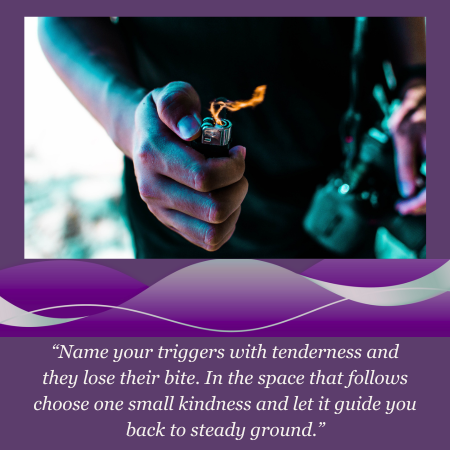
Common triggers that push carers toward burnout
Every caregiving story is unique. Many triggers echo across households. Lack of rest is common. Nights are broken. Days are long. There is little recovery time. Isolation is common. You feel unseen and unsupported. Financial strain arrives. Work hours drop. Medical costs rise. Budgets tighten. Unrealistic expectations pressure you to do everything and to do it perfectly. Complex care needs stretch your time and attention. Medication schedules mobility support continence care and urgent moments all add up. Role conflict is common. Parenting paid work study and personal dreams bump into your caring role. Perfectionism adds another stone to the load. You smile and say I am fine while the inside you feel frayed.
When you name your triggers you reclaim choice. Heavy loads can be lightened by shared tasks adjusted expectations and timely help. This is practical wisdom. This is not indulgence. This is the work of keeping love sustainable.
How caregiver burnout affects families

Burnout does not sit alone in a corner. It ripples through a home and beyond. When you are overtired attention slips. Your safety can be compromised and your relationships feel strained. Irritability and withdrawal create distance between partners and between parents and children. The person you care for senses your exhaustion and may feel guilt or anxiety. Your future health also stands at risk. Unaddressed stress can amplify pain and inflammation and mood difficulties.
Self care is not selfish. It is protective. A rested caregiver is a safer caregiver. A supported caregiver is a kinder caregiver. A steady caregiver offers steadiness to the whole household.
Visit The Wellness Hive for Caregivers Shop for Tools
Self assessment to spot drift toward burnout
Tick what has been true at least three days this week.
I wake up tired and stay tired. I feel irritable or flat.
I often skip meals or eat while standing.
I have not moved my body in a way that feels good.
I have withdrawn from friends or hobbies.
I struggle with simple decisions.
I feel guilty when I take time for myself.
I have headaches stomach upsets colds or back pain.
I believe I must do everything myself.
I have not asked for help even though I need it.
Zero to two ticks means you are coping well. Keep your routines steady. Three to five ticks means you are under strain. Add rest ask for help and simplify. Six or more ticks means you may be in chronic stress. Seek respite and professional support. There is no prize for pushing past your limits. There is grace in getting support before a collapse.
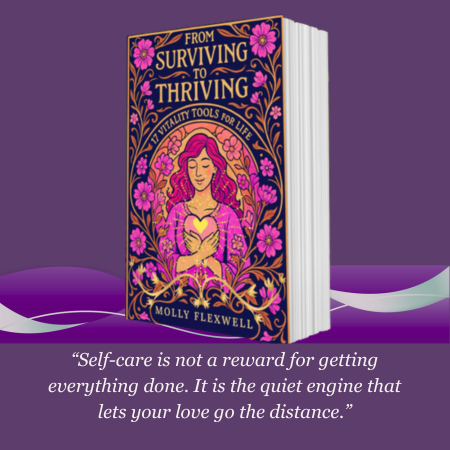
Practical self care strategies for caregivers
Self care is not a luxury weekend that never arrives. Self care is the quiet and regular leadership of your energy. These strategies fit inside ordinary days. They are designed for lives with interruptions.
Simple micro breaks that calm your system
Your nervous system responds well to small frequent resets. Try box breathing. Inhale for four. Hold for four. Exhale for four. Hold for four. Repeat three times. Try a shoulder reset. Roll your shoulders back and down. Unclench your jaw. Unclench your hands. Try a grounding scan. Name five things you can see. Name four things you can touch. Name three sounds. Name two scents. Name one flavour. Try the warm cup practice. Wrap your hands around a warm mug. Breathe slowly. Count five easy breaths. These tiny resets are portable kindness.
Boundaries that protect your care
Boundaries protect your energy and your kindness. Without them resentment grows. Decide your non negotiables. Protect a sleep window. Protect medication alarms. Protect a ten minute morning check in with yourself. Protect your own medical appointments. Use clear scripts. Say I can help with shopping on Thursday. I am not available on weekends. Say I need to finish this task first. I will be free in twenty minutes. Say I can do A or B today. I cannot do both. Which is most important. Say thank you for asking. I am at capacity this week. Please check with another person in our circle.
Movement that fits busy days
Tiny bursts count. Take a five minute brisk walk. Do gentle stretches while the kettle boils. Dance to three songs while you tidy the bench. Anchor movement to routines. Stretch after brushing your teeth. Walk while you wait for a prescription. Choose ease over perfection. You are caring for yourself not training for a medal.
Sleep that repairs
Create a wind down cue. Pour a herbal tea. Switch on a dim lamp. Read one calm page. Protect the last hour before sleep. Reduce screens. Jot down tomorrow’s tasks so your mind can rest. If nights are interrupted nap early in the day. Twenty to thirty minutes is enough. Avoid late caffeine. Treat sleep as a tender appointment with your future self.
Nourish without fuss
Batch simple foods. Make soup baked potatoes brown rice and roasted vegetables. Reheat one handed when the day is full. Use assembly meals. Try a wholegrain wrap with hummus spinach and tinned fish. Snack smart with nuts yoghurt fruit oat cakes and boiled eggs. Fill a bottle first thing. Sip each time you wash your hands. Hydration is an easy win.
Ask for help in specific ways
People often want to help but do not know how. Give choices. Ask could you do the Wednesday school run or pick up the prescription. Name a timeframe. Say I need two hours on Saturday between ten and twelve. Use shared lists. Create a family note on your phone. Keep a whiteboard in the kitchen. Tasks that are seen are easier to share.
Gentle therapy and journalling practices
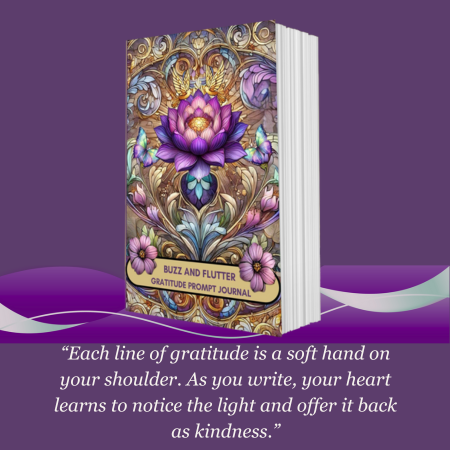
Journaling gives your emotions a safe home. It helps you notice what helps. Make it soothing. Light a candle or make a calming cup of tea. Put on soft music. Write for five to ten minutes without editing yourself. Use coloured pens to highlight gratitude or strength. Over time your entries become a map of resilience rather than a record of struggle.
Try these prompts.
- Today I felt overwhelmed when.
- One small act of kindness I can offer myself this week is.
- Three things I am grateful for today are.
- If compassion were a person at my table it would say.
- What I am carrying that is not mine to carry is.
- Pair journaling with small rituals.
- Write one evening line about what helped today.
- Set a morning intention with one sentence. Complete a weekend review and choose one thing to let go next week. These little pages can change the course of a month.
A seven day micro plan to ease caregiver burnout
Structure is a lifeline. Use this plan as a template. Adapt it to your reality.
Day one. Clear the decks. Write a to do not list with ten items you can release. Choose one boundary and practise the script out loud. In the evening place your legs up the wall for two minutes to settle your nervous system.
Day two. Nourish. Prepare a simple lunch for yourself before preparing any other meal. Drink a full glass of water with each medication round. In the evening note one thing your body did well today.
Day three. Move gently. Take three blocks of ten minutes for walking or stretching. Add one posture reset. Shoulders down jaw soft slow exhale. In the evening write one sentence about a moment of ease.
Day four. Ask and delegate. Send two specific requests for help. Create a small rota for one task such as bins pharmacy runs or school lifts. In the evening write three ordinary blessings.
Day five. Connection. Message or call a friend. Speak honestly. Step outside and catch a slice of sky for five minutes. In the evening write one thing you are proud of this week.
Day six. Restore. Protect one hour for a nourishing activity. Read a book. Tend a plant. Enjoy a slow bath. Prepare an easy breakfast for tomorrow to reduce friction. In the evening take two minutes of slow breathing.
Day seven. Review and reset. Ask what went well. Ask what felt heavy. Ask what can be simplified. Choose one self care non negotiable for next week and put it in your calendar. In the evening write a kindness note to yourself as if you were writing to a dear friend.
Boundary scripts for tricky moments
When someone minimises your load say I know it can look small from the outside. It is a lot to manage each day. I need help with Thursdays. When guilt rises say feeling guilty does not mean I have done something wrong. It means I have needs. I am allowed needs. When you must say no say I cannot take that on right now. I am prioritising rest so I can keep caring safely. When you need a pause say I am stepping into the next room for two minutes to settle my breathing. I will be back shortly.
Compassion fatigue and caregiver burnout
These terms are related but not the same. Compassion fatigue grows from long exposure to another person’s suffering. You may feel emotionally numb or detached. Caregiver burnout is wider and includes total exhaustion with physical depletion and cognitive fog. You can experience both. Remedies overlap. Boundaries micro rest movement and support bring relief.
When to seek professional support
Please reach out for help if sadness anxiety or anger persist. Please reach out if physical health issues worsen despite rest. Please reach out if you feel you want to give up. Please reach out if you cannot provide safe care. Speak to your GP. Speak to a counsellor. Speak to a local caregiver support service. Ask for immediate help if you feel at risk. Asking for help is a lifeline. Your courage is intact when you ask. Your wisdom is showing.

Tools and templates you can use today
Try a one page energy plan. List your top three drains this week. List your top three boosters. Choose one task to delegate. Choose one thing to drop completely. Create a calm corner checklist. Chair or cushion blanket timer journal pen soft music and herbal tea. Write a small sign that says two minutes of quiet back soon. Use the support sandwich. Start with appreciation. Add the boundary. Offer an option. Try a red amber green task sort. Red is urgent and essential. Amber is helpful but movable. Green can wait or be delegated. This little colour code brings order to busy days.
Frequently asked questions about caregiver burnout from clients
- How do I know if this is burnout or just a busy season. If tiredness lifts after a few good nights it is likely overwork. If exhaustion lingers and patience thins and health dips it is nearing burnout.
- Does taking a break make me selfish. Rest is maintenance. You would not run an essential piece of equipment without service. Your mind and body deserve the same care.
- What if there is nobody to help. Begin with micro relief. Practise breathing pauses. Simplify meals. Drop non essential tasks. Ask professionals about respite you might have missed. Even one hour a week can help.
- How do I talk to family who think I can handle it. Use short and specific statements. Say I am at capacity. Say I can do medication rounds. Say I need you to handle laundry on Sundays. Stick to concrete requests.
- I feel numb. Is that normal. Emotional blunting can be a sign of compassion fatigue or burnout. It is a signal for rest and support. It does not reflect the depth of your love.
In Conclusion
Caregiving is one of the deepest bonds of a life. It is love made visible in meals and lifts and midnight checks. That love should not ask you to abandon yourself. By recognising the signs of caregiver burnout and by understanding the stages and by practising small consistent self care you protect your health and your compassion at the same time. You keep the light of your kindness bright. You keep your days steadier. You make more room for joy to return.
Place a hand on your heart. Feel your own pulse. You belong to your life as much as you belong to your role. Take one breath for you. Take one step for you. Ask for one kind thing today.
Would you like to learn more at The Wellness Hive for caregivers. Visit www.mollyflexwell.com and step into a forward thinking community that honours your story. You will find daily grounding rituals and gentle journaling prompts and a circle of support that remembers the carer behind the caring.
Let your kindness begin at home in your own chest. Refill your cup, and what you give will taste like love, not sacrifice.” Molly
The Wellness Hive For Caregivers Shop
The Wellness Hive for Caregivers Shop is a gentle corner of the internet devoted to the people who hold everything together. It is a shop designed for caregivers, nurses, shift workers, and supporters who are giving so much of themselves and want simple ways to refill their own cup. Inside, you will find kind, practical wellness tools that make everyday care a little lighter and a lot more loving.
What we offer
- Caregiver self-care tools: gratitude journals, affirmation cards, reflection prompts, and gentle grounding practices that fit into real life.
- Planners and diaries: week-to-view wellness diaries, daily routines, and printable planners that help you protect your time and energy.
- Mindful downloads: instant digital guides for breathing, grounding, and journalling, plus caregiver checklists and calm-in-a-minute rituals.
- Beautiful gifts: Art Nouveau and stained-glass inspired designs in soft, uplifting colours that bring a little joy to a long day.
- Resources for burnout prevention: practical strategies for boundaries, rest, and recovery, created with caregivers in mind.
Who it is for
- Family caregivers who are balancing appointments, emotions, and the unexpected.
- Nurses and healthcare workers seeking quick, repeatable resets between shifts.
- Mothers and parents who want five calming minutes that actually work.
- Anyone feeling overwhelmed and ready for small steps back to clarity and calm.
How our products help
- Reduce decision fatigue with ready-to-use checklists, routines, and prompts.
- Support mental health with simple grounding exercises and gratitude journalling.
- Build resilience through tiny, consistent practices that fit into busy days.
- Make self-care visible with beautiful tools that invite you to pause and breathe.
What makes us different
- Created by a caregiver for caregivers, with lived insight and compassionate design.
- Evidence-informed practices translated into everyday language and easy routines.
- A kindness-led philosophy that treats rest and support as necessary, not optional.
- Art that soothes: bees, florals, and stained-glass motifs that feel hopeful and calm.
How it works
- Digital items arrive instantly so you can start today.
- Physical items are printed with care and packed as if they were for a friend.
- Clear, human support if you ever need help choosing or using a product.
Our promise
Molly Flexwell helps exhausted caregivers reclaim their energy, self-worth, and joy through practical tools and kindness-led living. We will never add to your overwhelm. Every product focuses on clarity, usefulness, and kindness, so you can move through your day with more steadiness and a little more light.
